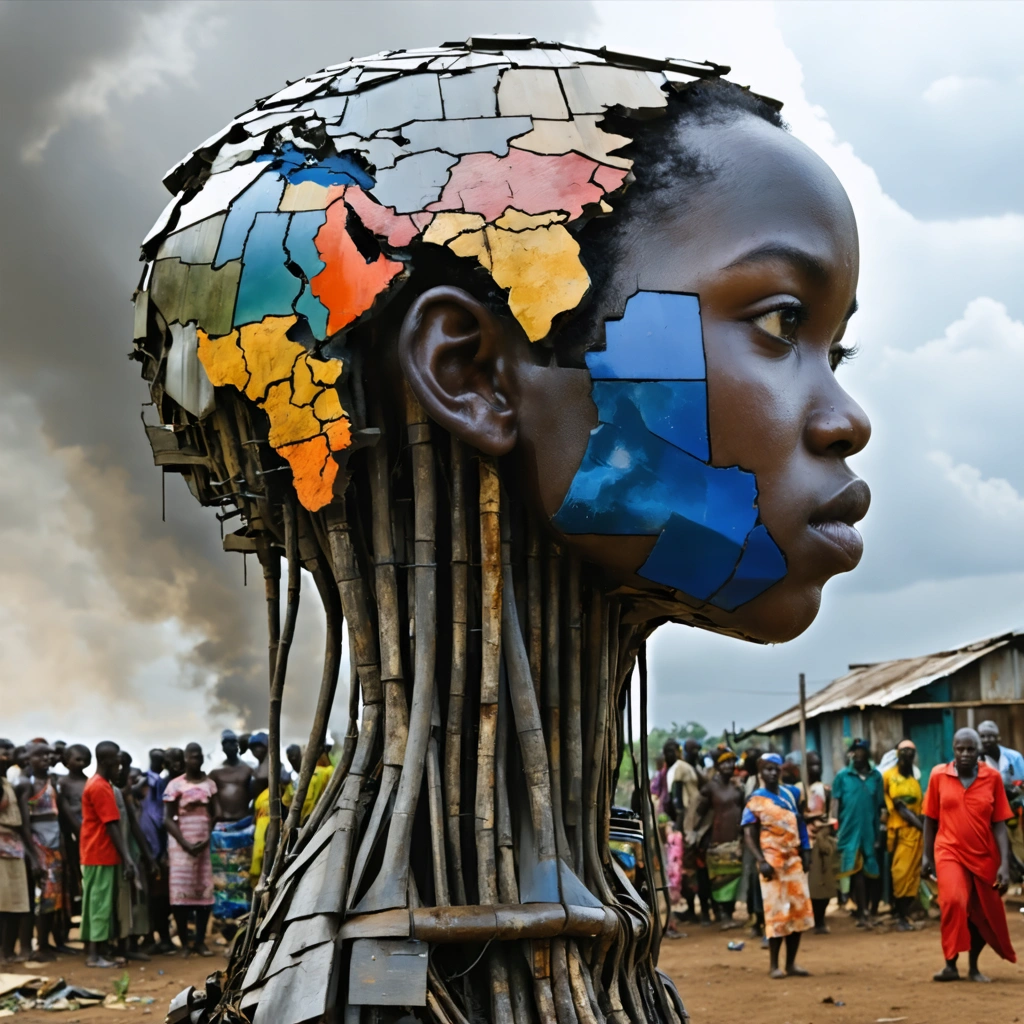
Unprecedented Neglect Amid Escalating Violence in the DRC
The Democratic Republic of the Congo endures unimaginable hardship as violence sweeps through North and South Kivu provinces. In these turbulent times, world leaders overlook the plight of displaced civilians who reside in makeshift encampments around Goma. Jan Egeland, the head of the Norwegian Refugee Council, expounded on the situation with unwavering conviction. He argued that international policymakers display an alarming disregard for those fighting to survive every day. Moreover, communities face not only physical insecurity but also a deterioration in humanitarian services as funding cuts intensify. Transitional words such as “furthermore,” “in addition,” and “consequently” portray the unfolding layers of crisis experienced by the residents of the DRC.
In Goma, more than 1.2 million people live in overcrowded, unsanitary conditions that expose them to disease and violence. Families continue to endure this nightmare with resources stretched thinner than ever before. Although humanitarian organizations strive to fill the void, the escalating violence and political indifference risk undermining decades of progress. Thus, the international community must rally around those in need by championing policies that emphasize humanitarian relief over political agendas.
An Appeal for Global Accountability
Jan Egeland’s speech delivered a scathing critique of international efforts to mitigate the crisis. He personally condemned what he called “nationalistic winds” across the United States and Europe that precipitate aid cuts. His rhetoric underscores a long tradition of political rhetoric that consistently fails the millions who suffer daily. In his impassioned call, Egeland stressed that every bureaucratic delay and every dollar diverted from humanitarian aid shrinks the opportunity to save lives. In addition, he argued that world leaders must evaluate their priorities while reassessing moral values to protect human lives at the very edge of despair.
Using clear evidence and anecdote, Egeland painted a harrowing picture of camps situated on the outskirts of Goma. He listed several factors that contribute to the unfolding calamity:
- Inadequate shelter and insufficient clean water
- Overburdened medical facilities lacking essential medicine
- Neglected infrastructure that accelerates the spread of disease
- Lack of coordinated international humanitarian aid
- Political rivalries that conflate national interests with funding decisions
Each factor compounds the trauma experienced by displaced individuals, which deepens the moral quandary confronting global policymakers.
Inside Stories: Lives Plunged into Uncertainty
Every day, the citizens of the DRC face daunting challenges as they navigate displacement with limited resources. Families leave behind homes that held memories, and along with them, the hope that local or international powers will provide protection. In one particularly illustrative anecdote, a mother of four recounts the ordeal of living in an open camp, exposed to harsh weather and little medical attention. Her words echo the despair felt by many, yet they also reveal the resilience that emerges during adversity. In contrast, humanitarian workers share tales of courage as they attempt to bridge the gap between dire needs and international indifference.
As the narrative of suffering unfolds throughout Goma, many citizens express frustration and hopelessness. The relentless challenges of poor sanitation, the spread of communicable illnesses, and the constant threat of violence compound their everyday struggles. Consequently, these hardships demand prompt and decisive intervention. Additionally, survivors emphasize that urgent humanitarian aid not only saves lives but also galvanizes communities to rebuild hopeful futures.
A Multifaceted Strategy for Change
Given the severity of the crisis, the search for solutions intensifies. Experts propose a multifaceted strategy that prioritizes both immediate relief and long-term development. The strategy comprises several key elements, which appear in structured lists and tables below.
| Key Area | Proposed Action |
|---|---|
| Immediate Humanitarian Aid | Deploy emergency medical services; distribute food and water; set up temporary shelters |
| Security Measures | Increase local law enforcement patrols; notify international peacekeeping forces; enhance community security |
| Infrastructure Development | Rebuild and repair roads; improve water sanitation; renovate existing shelters |
| Political and Financial Commitment | Encourage global donors to increase funding; commit to long-term development projects; support local governance |
Furthermore, a set of eight recommendations garners attention:
- Allocate emergency funds for immediate shelter needs.
- Establish mobile medical units in remote areas.
- Facilitate local community involvement in decision-making.
- Enhance cross-border dialogue for security and resource sharing.
- Create transparent channels to monitor aid distribution.
- Support micro-enterprises to promote self-reliance.
- Invest in educational programs to foster long-term resilience.
- Emphasize coordinated international efforts instead of unilateral actions.
Each recommendation highlights crucial steps required to restore dignity and hope among the displaced. Given the current political climate, implementing these measures becomes imperative for rebuilding trust and sparking sustainable recovery.
The Ripple Effects on Global Politics and Human Rights
Strong criticism follows international political stances with significant global repercussions. Many political figures in the United States and Europe face backlash from both humanitarian organizations and grassroots movements. Their decisions consistently fall short when it comes to protecting innocent civilians. Analysts assert that even marginal enhancements in aid allocation could drastically change the situation. Likewise, citizens demand accountability from their leaders, insisting that humanitarian responsibilities override geopolitical ambitions. Meanwhile, many grassroots organizations and activist groups amplify these voices during public protests and international conferences, urging swift action that goes beyond rhetoric.
International bodies such as the United Nations become part of crucial debates, which reveal the interconnectedness of politics and human rights. These discussions gain momentum as numerous activists and political representatives demand substantial changes. Additionally, regional organizations within Africa underscore that regional security and humanitarian well-being intertwine intricately with international policies. Therefore, global partnerships hold the key to enacting a balanced set of measures capable of arresting this deepening crisis while also safeguarding human dignity.
Charting a Path Forward
Prioritizing humanitarian aid remains essential for alleviating the suffering of millions in the DRC. Acknowledging the multifaceted challenges ahead, political leaders must redirect attention to those who face life on the fringes of society. The narrative of neglect must transform into concerted political will that empowers the vulnerable and delivers on noble humanitarian promises. In the near future, governments should adopt comprehensive monitoring systems to gauge the impacts of their decisions on humanitarian efforts. In addition, international watchdogs may offer independent evaluations that prompt further accountability.
Furthermore, numerous civil society entities and non-government organizations rise to the challenge by organizing local workshops and global conferences. They emphasize the importance of community-led initiatives that foster self-sustainability. Moreover, these organizations aim to ensure that every recommendation finds support through tangible actions. Encouragingly, early success stories in neighboring regions inspire broader efforts to harness local ingenuity. Consequently, a sustained, collective effort emerges as the cornerstone of a more just humanitarian future.
A Call to Action: The Imperative of Compassion and Unity
Today, as the situation in the DRC deteriorates under the weight of humanitarian neglect, the international community encounters a defining moment. In the midst of passion and despair, a clear call to action persists, urging global leaders to mobilize. Citing prominent international conventions and a shared commitment to human rights, many insist on transforming political rhetoric into genuine support. Bringing together expertise from various fields, humanitarian professionals encourage leaders to remain accountable, promote essential dialogue, and stand up for the rights of displaced individuals.
Moreover, the story of the DRC demands that every nation re-evaluate its role in alleviating suffering. Increasing public awareness through vivid accounts and reliable data, media outlets contribute to a global shift. In essence, the situation underscores the urgent need for coordinated policies that prioritize equity and human dignity. Simultaneously, the ramifications stretch beyond local borders, making it clear that a truly compassionate international order can no longer tolerate apathy. As history watches, the choices made today will define tomorrow’s narrative of courage, justice, and unity.




